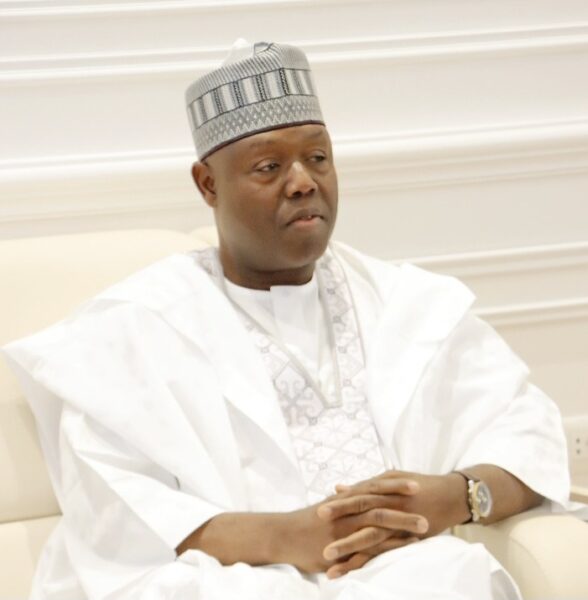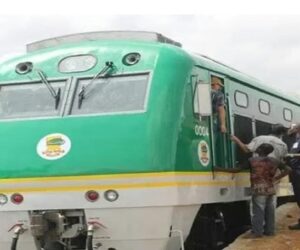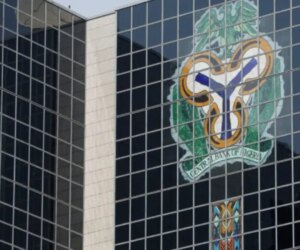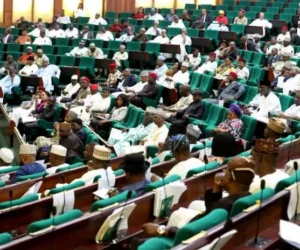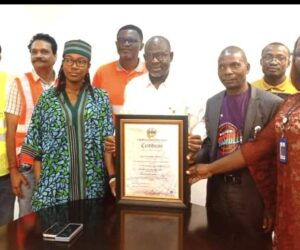…Unveils plan for Nigeria to earn remittance via labour export
From Aidoghie Paulinus, Abuja
The Director-General, Nigeria Technical Aid Corps (NTAC), Yusuf Buba Yakub, has said the volunteer scheme established by the federal government in 1987 as a soft power diplomacy to serve as a tool of sending out professionals or technical aid to African, Caribbean and the Pacific countries, has impacted over 40 countries with over 10,000 volunteers since establishment.
Speaking with Daily Sun in Abuja, Buba disclosed that NTAC is currently in the process of kick-starting the exportation of labour to other countries, an avenue, he said, that will aid government in earning remittances from overseas.
He also said, since his assumption of office on August 28, 2023, the Nigeria Technical Aid Corps has not witnessed the abscondment of any of the volunteers, saying that the volunteers conduct themselves with integrity in countries where they are deployed.
Among other issues, the former chairman, House of Representatives Committee on Foreign Affairs, concluded that Nigeria is not wasting a dime in sending technical aid to the outside world because every penny spent when Nigeria sends experts outside the country is spent on the nation’s citizens.
You will be two years in office on August 28. How has the journey been so far? And what will now be your new vision, going forward?
So far, so good, the Nigeria Technical Aid Corps, as you can see, I am sure you have visited us several times during our deployment, the Nigeria Technical Aid Corps is fully alive, thanks to Mr. President, President Bola Ahmed Tinubu, for the solid foundation he laid when he came in as president with a very great foreign policy agenda, the 4-D Foreign Policy Initiative. That is what has given us the leverage to be able to do what we are doing. Before now, the scheme has been on a low side, but in the past two years, we have achieved a lot.
As you know, the Nigeria Technical Aid Corps was established in 1987 as an instrument of soft power diplomacy to serve as a tool of sending out professionals or technical aid to African, Caribbean and the Pacific countries. And in the past 38 years, we have reached out to over 40 countries and have deployed over 10,000 volunteers. And in the past two years, we have been deploying volunteers almost every month to different countries and my dream, as you asked, is to see NTAC serve as a tool for eradicating unemployment in Nigeria. One of our greatest problems in Nigeria today is unemployment. Seventy percent of our graduates, our youths, are unemployed, so we came up with this initiative. Because of the good track record the NTAC volunteers have left in the minds of the countries they have served, Nigeria has gained a lot of respect from these countries. So, in one of my bilateral meetings with the minister of health in Jamaica, they asked for more volunteers to be deployed and I said well, we can deploy the few we can afford, but if you can pay for it, we have abundant human resource in Nigeria. Just like you import from Philippines and other countries of the world, Nigeria can also export manpower to you. And they accepted and within a couple of weeks, they sent a request. And this new initiative has gone through due process – it has gone to the Ministry of Foreign Affairs, it has gone to the Minister of Justice and the Minister of Justice has gotten the advice from the Ministry of Labour, Ministry of Health and finally, the Minister of Justice has given a clean bill for this programme to start and presently, we have communicated to Jamaica. We have sent the copy of the draft agreement to them and very soon, this agreement will be signed and Nigeria will start exporting its labour with dignity and respect to other parts of the world, instead of through the illegal migration popularly called Japa. So, that is one of the greatest initiatives the Nigeria Technical Aid Corps is working on.
Can you state the challenges you are facing as an institution?
There is no institution that does not have challenges, but we don’t allow challenges to stop our progress. Mostly, when you talk of challenges, you will talk of funding. But I always say, thanks to President Bola Ahmed Tinubu, because of his great initiative in the foreign policy. We have been working, we have been getting funding, so that challenge has been overcome and we are working round the clock.
Deployment for a fee: can you give more insight?
What we mean by deployment for a fee is that, if you remember, in the 1980s, when we were in the secondary school, we used to see Indians, people from Pakistan and even Americans teaching in our secondary schools. There are countries in the world today that depend on labour export as a source of foreign exchange earner. So, countries like the Philippines are known for that and so many other countries. In Nigeria, we have abundant human resource. We are over 250 million and our population is well educated, but, unfortunately, 70 percent of our population are unemployed or underemployed. So, because of that, we came up with this initiative to say, how do we prevent the illegal migration where our agile youths, educated youths struggle to go out of the country, seeking for greener pasture and some end up die in the desert and some end up drowning in the high sea and even those that made it, suffer all sorts of inhuman treatment because they go out there illegally. We said we can take advantage of our population and of our educated human labour. That was why we packaged this and due to the NTAC programme, our citizens have been all over the world, serving through the volunteer scheme and so, countries of the world have tested us and know that we have citizens of high integrity, high intellectual standing and so on. It is not difficult for us to sell what we have. When we start exporting our labour, countries will sign agreement on condition of service for our citizens that will work there and they will also pay revenue to our government for that. So, Nigeria will start earning revenue from the export of our labour and our citizens will go out there and serve with dignity. They will go with their families and work for a period of time based on the agreement and it will serve also as another source of remittance back home to our country. So, that is the scheme.
How many volunteers does NTAC send out yearly?
Since I resumed two years ago, like this year, we have over 300 volunteers that have gone out to about 11 countries of the world between last year and this period. Recently, we deployed more to Grenada. They have arrived and we have received 15 from Gambia and 21 have gone back to Gambia. So, almost on monthly basis, we deploy volunteers to different parts of the world.
Have you had cases of volunteers who absconded?
Well, since I resumed, there hasn’t been any case of abscondment because we make sure we do due diligence before we send out our volunteers. And you know we have our embassies as their guidance and their allowances are paid through the embassies. The Central Bank of Nigeria pays their allowance directly to the accounts in the embassies and the embassies pay them monthly. They must make sure you come physically to get your allowance. If you attempt to abscond, the embassy will know, so we don’t have issue of abscondment. Fifteen were sent to Gambia two years ago and the fifteen have returned to the country.
Recently, the president signed an agreement while he was in St. Lucia on technical manpower agreement. How does NTAC come into this?
Yes, in St. Lucia, I was on the President’s delegation and Mr President met with prime ministers from the Eastern-Caribbean countries, not just with St. Lucia. St. Lucia was the base, but he met with different prime ministers and Mr President made commitment to send technical aid to the Eastern-Caribbean countries and we signed the first agreement with St. Lucia. I signed the agreement on behalf of Nigeria after the President directed and in line with Mr President’s directive, we have already deployed volunteers to Grenada. They have arrived and the ministers of health and foreign affairs in Grenada have received them. So, we have started implementing Mr President’s directive and the first set of volunteers have arrived Grenada, one of the Eastern-Caribbean countries that the president directed that we should start deploying volunteers to.
The government has been having financial difficulty in funding Nigerian missions abroad. Is it that the government gives priority to NTAC assignment that you have no difficulty with funding? Is the funding coming from budget line or you have a way of raising funds for the scheme?
Our funding is 100 percent by government and agencies of government like the embassies face challenge because of the inflation that we had. For example, in 2024, the National Assembly approved the exchange rate by N750 and down the line the exchange rate skyrocketed to about N1,600 to N1,700. So, if your budget is for 12 months at an exchange rate of N750 and it skyrocket to N1,700, you can see that that money can only take you for six months. That is where challenges come, but the government will always find a way to augment those differences and that is why we still have our embassies functioning and doing well.
In terms of NTAC, I always say that Nigeria is not wasting a dime in sending technical aid to the outside world. Why I always say that is because every penny we spend when we send experts outside the country is spent on our citizens. Before the establishment of TAC, we normally give cash support to countries. You will remember South Africa during the apartheid regime. Nigeria supported in billions of dollars and that type of funding is not well appreciated in the long run because generations down the line may not even know what you have done. But in terms of sending technical aid, it is your citizens you are paying to go and serve and when they go out there, they will also gain a lot of knowledge to bring back home. In the academia, professors go out on sabbatical. When you keep your professors in the four corners of one university for 35 to 40 years, their level of knowledge will be limited. You must send them out on sabbatical. So, as they go out as volunteers, they are also exposed to the way things are done in the outside world and when they come back, they will also come back with knowledge. Whatever we spend, we are spending on the allowances of our volunteers. And mind you, the issue of accommodation, the issue of utility bills – electricity, water and transportation, is taken care of by the recipient countries and not by Nigeria. It is the recipient country that will give the volunteers accommodation and that is why when I am deploying them, I will say you are leaving your comfort zone to go as volunteer, so no matter what you are given, even if it is half a room, or a tent to say, you are there as a volunteer to serve humanity in that country and also to gain some experiences and knowledge that you will bring back to Nigeria when you come back. So, you cannot compare experts that we send out as volunteers for two years with their counterparts that have never gone outside the shores of Nigeria to gain experiences. When they come back, they come with a lot of experiences and apart from that, when they go out there, they are portraying the image of Nigeria.

